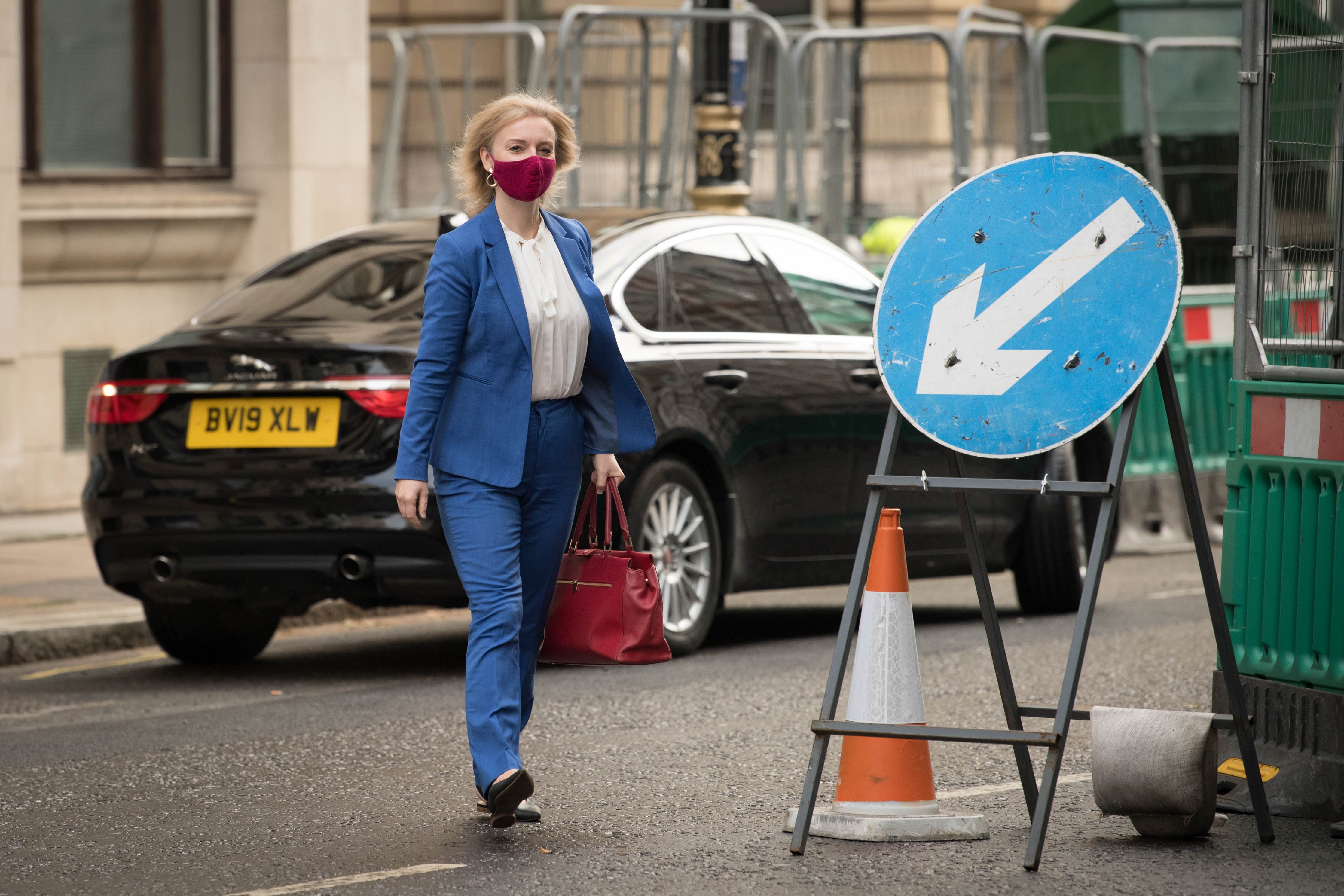Liz Truss admits Brexit contributed to food shortages, contradicting Cabinet colleague
‘Of course there was always going to be a period of adjustment for businesses,’ says Liz Truss

Your support helps us to tell the story
From reproductive rights to climate change to Big Tech, The Independent is on the ground when the story is developing. Whether it's investigating the financials of Elon Musk's pro-Trump PAC or producing our latest documentary, 'The A Word', which shines a light on the American women fighting for reproductive rights, we know how important it is to parse out the facts from the messaging.
At such a critical moment in US history, we need reporters on the ground. Your donation allows us to keep sending journalists to speak to both sides of the story.
The Independent is trusted by Americans across the entire political spectrum. And unlike many other quality news outlets, we choose not to lock Americans out of our reporting and analysis with paywalls. We believe quality journalism should be available to everyone, paid for by those who can afford it.
Your support makes all the difference.The international trade secretary, Liz Truss, has admitted Brexit has contributed to shortages on supermarket shelves in Northern Ireland, contradicting her Cabinet colleague Brandon Lewis.
Ms Truss joined Ireland’s foreign affairs minister, Simon Coveney, in acknowledging the UK’s departure from the EU played a part in the disruption, putting her at odds with Mr Lewis, the Northern Ireland secretary, who has said disruption caused by coronavirus before Christmas is solely responsible for the shortages of some food products and is "nothing to do with leaving the EU".
But Mr Coveney told ITV's Peston: "I don't think it's only to do with Covid-19, though certainly that doesn't help.
"The supermarket shelves were full before Christmas and there are some issues now in terms of supply chains. So that's clearly a Brexit issue and it's part of the reality of the United Kingdom now being outside not only the European Union but of the customs union and the single market as well.
"Northern Ireland of course has special treatment and we've made a huge effort to try and minimise those checks and that disruption but nevertheless it's there and very real."
When she was asked about Mr Coveney's assertion that the shortage of goods is not to do with Brexit agreements as well as Covid-19, Ms Truss told Peston: "Well I think it's down to both of those issues.
"We were always clear that we are leaving the single market, we are leaving the customs union, there would be processes to be undertaken."
But she said "predictions of armageddon" over Brexit "simply haven't happened" and that "we're now seeing a more rapid flow of goods into Northern Ireland and those supermarket shelves are being stocked".
"Of course there was always going to be a period of adjustment for businesses," she added.
On Tuesday, Mr Lewis said shortages of some products in the weeks since the post-Brexit transition period ended on 31 December were due to the knock-on effects of UK trade with continental Europe being temporarily halted due to concerns over the new Kent variant of coronavirus.
He told BBC Radio 4's Today programme: "That's actually something we've seen across other parts of the UK as well, nothing to do with leaving the EU, nothing to do with the Northern Irish protocol but actually to do with some of the challenges we saw with Covid at the port of Dover just before Christmas and the impact that had on supply lines coming through.
"I have to say supermarket supply lines at the moment are in good fettle."
The Northern Ireland Protocol between the UK and the EU requires health certifications on animal-based food products entering Northern Ireland from the rest of the UK.
On Wednesday, Mr Coveney said the Brexit divorce deal agreed with the EU by then-prime minister, Theresa May, would have caused less separation from Northern Ireland from the UK.
"There was an opportunity for a very different kind of Brexit that would have avoided much of the trade disruption that we're now experiencing and people chose not to take that opportunity," he said.
Additional reporting by Press Association


Join our commenting forum
Join thought-provoking conversations, follow other Independent readers and see their replies
Comments